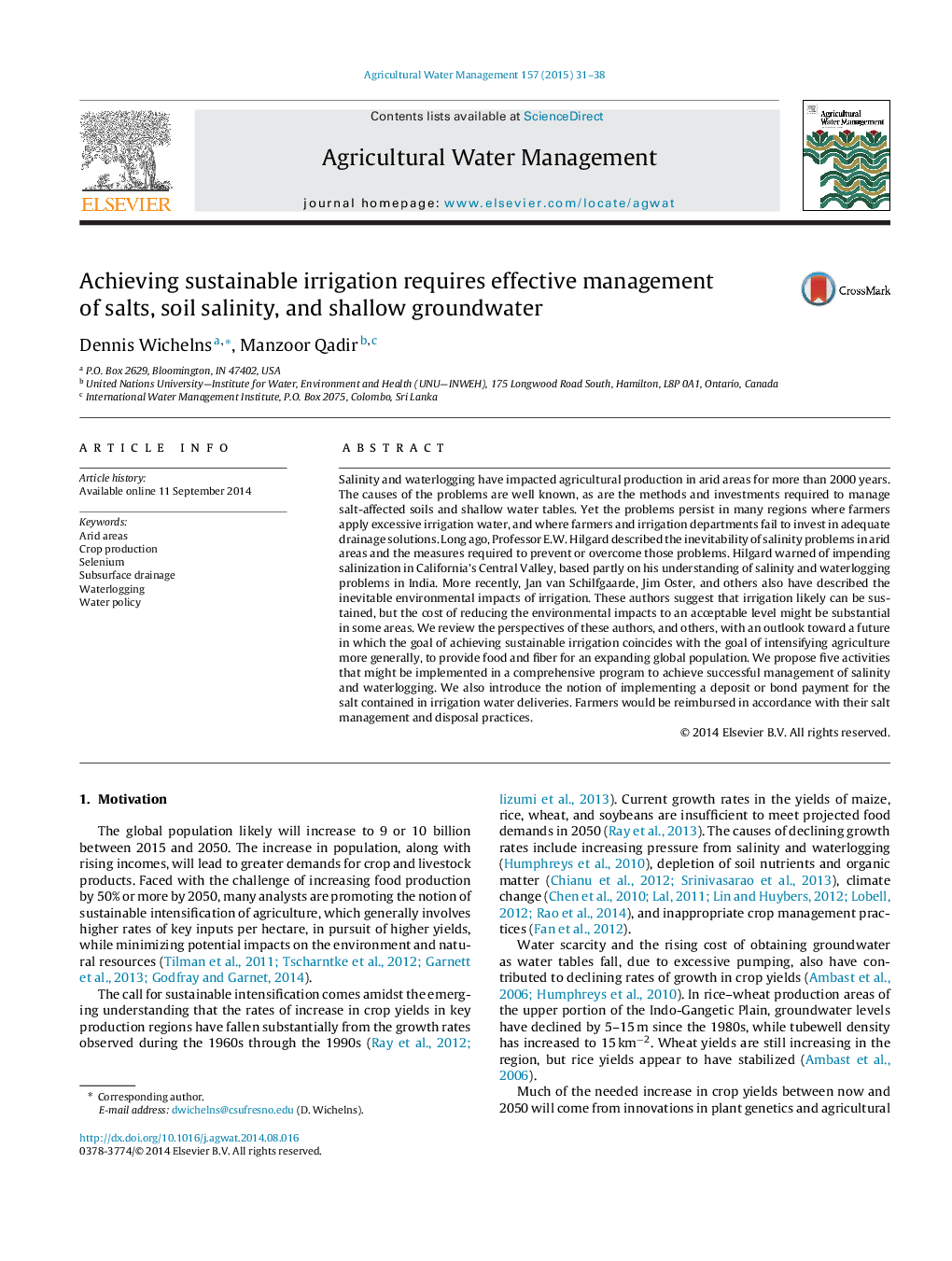| کد مقاله | کد نشریه | سال انتشار | مقاله انگلیسی | نسخه تمام متن |
|---|---|---|---|---|
| 4478486 | 1622922 | 2015 | 8 صفحه PDF | دانلود رایگان |
Salinity and waterlogging have impacted agricultural production in arid areas for more than 2000 years. The causes of the problems are well known, as are the methods and investments required to manage salt-affected soils and shallow water tables. Yet the problems persist in many regions where farmers apply excessive irrigation water, and where farmers and irrigation departments fail to invest in adequate drainage solutions. Long ago, Professor E.W. Hilgard described the inevitability of salinity problems in arid areas and the measures required to prevent or overcome those problems. Hilgard warned of impending salinization in California's Central Valley, based partly on his understanding of salinity and waterlogging problems in India. More recently, Jan van Schilfgaarde, Jim Oster, and others also have described the inevitable environmental impacts of irrigation. These authors suggest that irrigation likely can be sustained, but the cost of reducing the environmental impacts to an acceptable level might be substantial in some areas. We review the perspectives of these authors, and others, with an outlook toward a future in which the goal of achieving sustainable irrigation coincides with the goal of intensifying agriculture more generally, to provide food and fiber for an expanding global population. We propose five activities that might be implemented in a comprehensive program to achieve successful management of salinity and waterlogging. We also introduce the notion of implementing a deposit or bond payment for the salt contained in irrigation water deliveries. Farmers would be reimbursed in accordance with their salt management and disposal practices.
Journal: Agricultural Water Management - Volume 157, 31 July 2015, Pages 31–38
